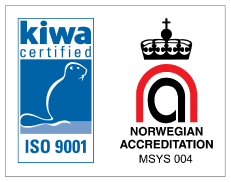Home / Help with ovulation
Help with ovulation
We have extensive experience in helping with ovulation problems. We normally investigate lack of egg development or ovulation through a customized fertility checkWe then take blood samples to map the woman's hormone profile, and since you probably do not have a regular cycle, the samples can be taken at any time.
We check hormones such as FSH, LH, prolactin, estradiol, TSH, FT4, testosterone, SHBG, DHEA, AMH and androstenedione. Here we will often uncover what may be wrong and what we can do about it. We normally do this together with a more complete fertility check where we also examine the man's sperm quality and the woman's fallopian tube function.
If we find that there are problems with ovulation, we try a simple tablet treatment. A treatment series consists of three treatment cycles. The purpose of the treatment is to find out what dose of the preparation the woman needs to have in order to have egg development and ovulation. If we do not find that there has been egg development and ovulation on the lowest dose, this is increased in the next cycle. The blood test that will show whether there has been egg development and / or ovulation is taken on the 20th day of the cycle. The woman calls us 3-4 days later to find out if the dose she used was suitable for her. If more tablets or blood test requisitions are needed, the woman will receive this afterwards.
Effect
Many women who do not have egg development and ovulation will find that their ovaries begin to function normally with simple stimulation, perhaps as many as 70-80%. Those who do not respond to treatment may be offered the opportunity to try stimulation with the hormone FSH in low doses.
Side effects
Stimulation of the ovaries can slightly increase the likelihood of multiple births if you first become pregnant. Likewise, even with such simple stimulation as we do with the preparation, femar/letrozole, very rarely hyperstimulation syndrome (OHSS).
Our offer

We offer two variations of simple stimulation.
- The most common variant includes ultrasound follow-up to assess egg development and a recommendation to measure the ovulation hormone (LH) in urine from a given day to ensure the best possible time for intercourse.
- Sometimes, especially if you live far from one of our clinics, instead of an ultrasound, we can follow you up by asking you to take a blood test on the 20th day of your cycle to follow up on whether there has been egg development and/or ovulation.



